The Worst Foods for Runners To Avoid at All Costs, Says Dietitian
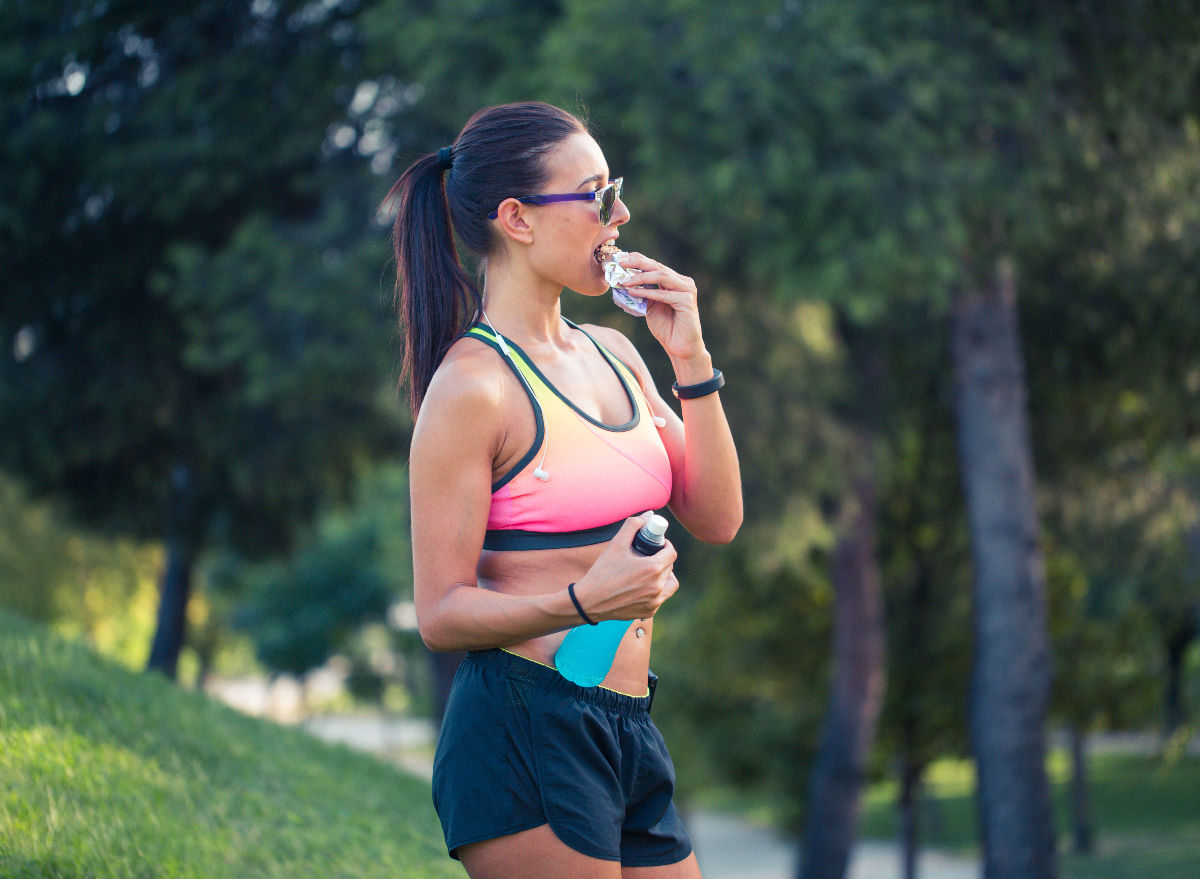
If running is your go-to workout routine, you need to make it a priority to learn anything and everything that can possibly optimize your sprint. Along with performing the most beneficial training exercises to enhance your run, there are many specific food choices you need to fuel your body. But just as important as knowing the right foods is knowing the worst foods for runners to avoid at all costs. Don’t run off just yet, because we have expert advice on what not to eat. Read on to learn more, and next up, don’t miss The 6 Best Exercises for Strong and Toned Arms in 2022, Trainer Says.
A nutrient-dense diet will properly fuel your body and help with recovery
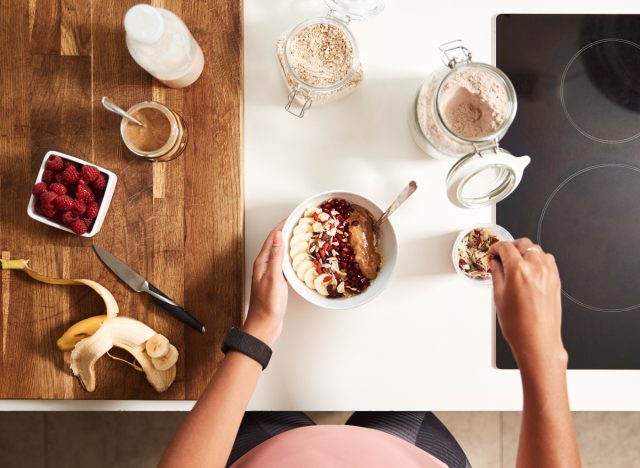
Eat This, Not That! spoke with Amy Goodson, a registered dietitian and certified specialist in sports dietetics, who explains that not one specific food will make or break a runner’s training regimen or diet plan. If you’re a serious runner who hits the ground running for miles each week, however, it’s essential to eat a nutrient-dense diet to properly fuel your body and help with recovery.
Related: These Are the Best Foods for Running Stamina, Says Dietitian
Avoid processed foods
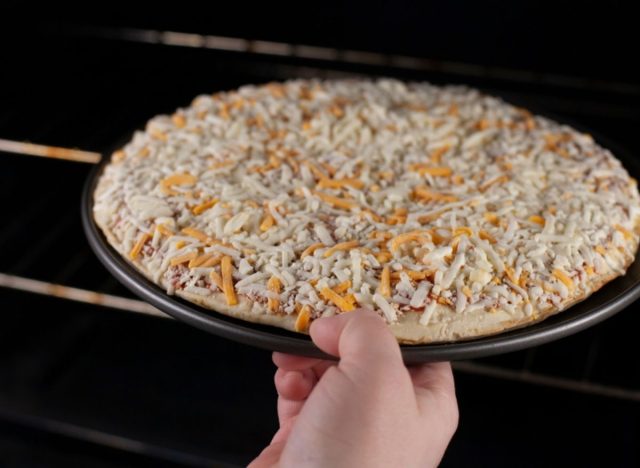
What should be on your not-to-eat list? Stay away from foods that are less nutrient-filled, as they typically add more body fat rather than build muscle. Processed foods should be avoided, as they’ve gone through many changes from their natural state, which can include the addition of flavors, preservatives, food additives, nutrients, or substances that have been approved to use in food items like fats, sugars, and salts, according to the Department of Agriculture (via Mayo Clinic).
Some examples of processed foods include sweetened breakfast cereals, cookie and cake mixes, packaged instant soups, carbonated soft drinks, packaged breads, and reconstituted meat products. According to Mayo Clinic, some of the highest processed foods are deli meats, crackers, microwaveable dinners, and frozen pre-made meals. Additional processed foods are salad dressing and jarred pasta sauce.
Opt for veggies, fruits, dairy, whole grains, and lean protein
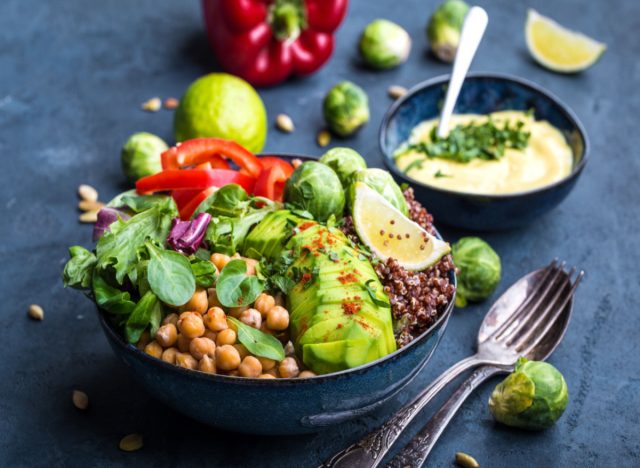
Goodson stresses the importance of limiting the consumption of highly processed foods with saturated fats and added sugars. Instead, opt for nutrient-dense foods, such as veggies, fruits, dairy, whole grains, healthy fat, and lean protein. She advises, “Specifically look to consume high antioxidant foods (typically produce) and omega 3-fatty acids found in fatty fish like salmon, trout and tuna, walnuts and seeds.”
Related: Lose Fat in Your Waistline With These 5 Cardio Tricks, Trainer Says
Limit high-fat meals and snacks in the timeframe leading up to a race or run
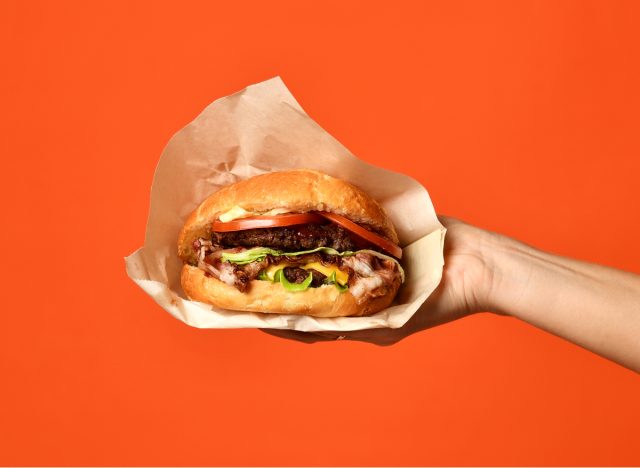
In the timeframe leading up to a race or run, it’s especially important for runners to limit high-fat meals and snacks, which are likely to sit heavily on their tummy and make them not feel so great. “Focusing on carbohydrates in your pre-run snack with a little protein is the best option for fueling. If you ate a meal within 2 hours, you might be able to just eat a carbohydrate snack to fuel the run, depending on how long and intense it is,” Goodson explains.
Snacks like Greek yogurt with granola and berries or pita chips with hummus are great choices
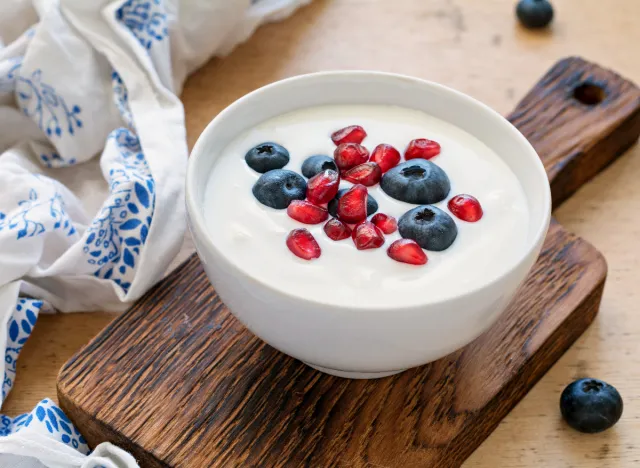
Typically, a diet high in complex carbohydrates, some healthy fat, and protein are quite beneficial for runners. “Carbohydrate needs are based on how much you run/train. The more you run, the more carbohydrates you need. The less you move, the less you need. Think of it like driving your car around; if you drive your car around a lot you have to put gas in it more frequently. It’s the same concept with the body,” Goodson says.
She adds, “Runners should be eating often throughout the day to keep their bodies well-fueled. Most runners can think of shaping their plate with 1/3 complex carbohydrates, 1/3 high-quality protein, 1/3 veggies, some fat, and a fruit at meals on normal training days. On harder, more intense training days, that plate should shift to 1/2 complex carbohydrate, 1/4 high-quality protein, 1/4 veggies, some fat and a fruit. Then snacks should consist of a carbohydrate and protein like whole grain crackers and cheese, Greek yogurt with berries and granola, whole grain bread with peanut butter and a banana, hummus with pita chips and string cheese, etc.”








